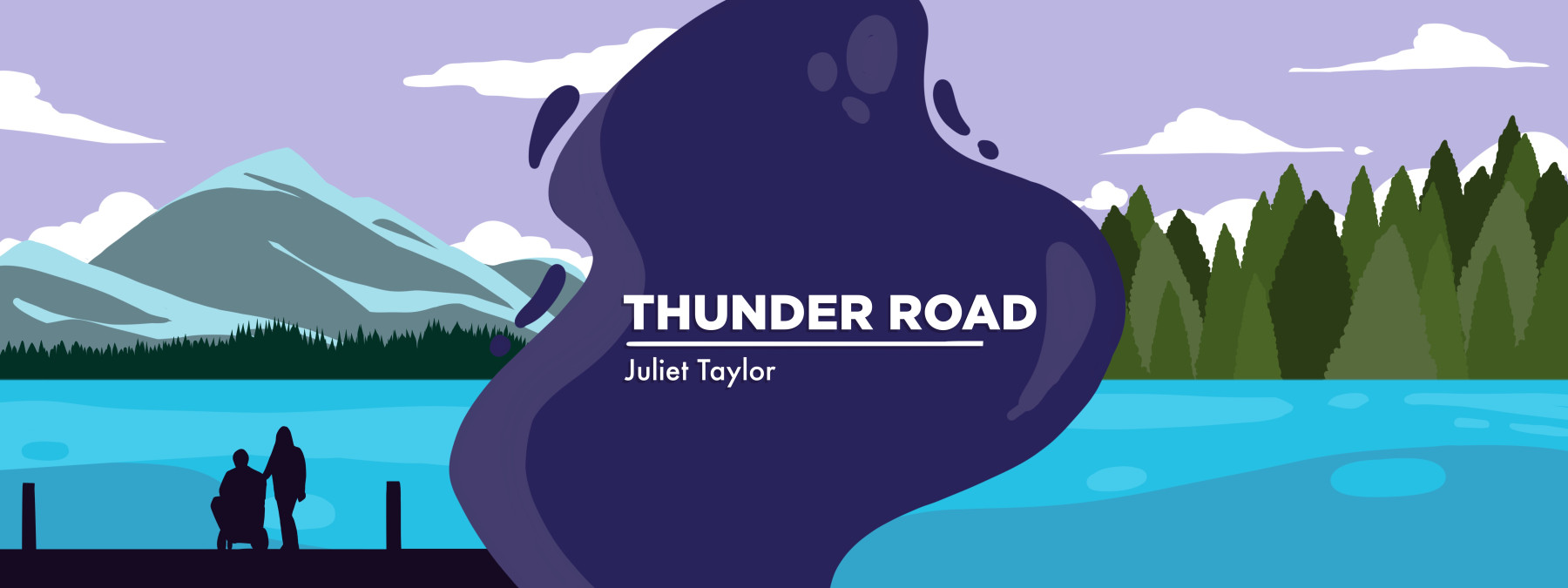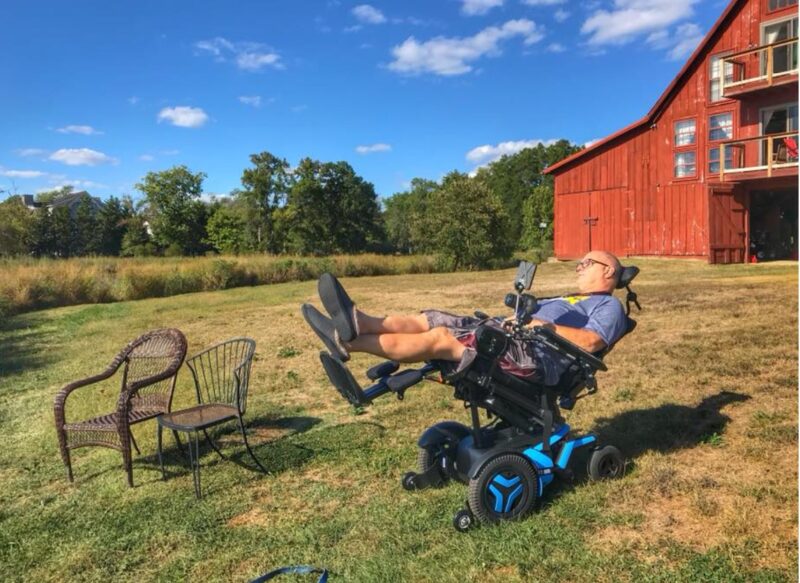Adapting helped us keep the outdoors a part of life with ALS
Everyone has spaces that bring peace. ALS does not change that.
Written by |

My late husband, Jeff, and I shared a love of the outdoors, even though our preferred activities were often different. I loved to hike and kayak, while Jeff, who’d been injured when a car hit his bicycle in 2010 and still suffered from orthopedic pain, preferred to relax. Whether at home or traveling, many evenings found him outside with a cigar, a beer, and music playing quietly on a portable speaker.
During our relationship, we managed to blend many of our preferred outdoor pursuits into things we could enjoy together. We loved to dine on restaurant patios, for example, and we discovered a shared love of powerboating. While boating, we explored hidden coves and shallow areas where we could beach the boat and let our dogs into the water to fetch sticks and explore.
When Jeff was diagnosed with ALS in the fall of 2018, his symptoms were relatively mild, and even though we were shocked and saddened by the news, we still spent as much time as possible outdoors. Just a few weeks after his diagnosis, we booked a family trip, taking his adult kids to the Dominican Republic over New Year’s so that we could all spend time together. We rented an apartment just steps from the beach, where we spent each day soaking up the sun and dining alfresco at night.
Still, as we traversed the airport on our way home, I noticed that Jeff’s walking was already less steady than it had been in the same airport a week earlier. His pace was slower, and he needed to stop more frequently. He didn’t want to ask for wheelchair assistance just yet, a sentiment I understood. We were still grappling with his diagnosis and didn’t want to admit that we needed help.
Always a problem solver, Jeff determined that our next outdoor vacation would include a beach with hard-packed sand. He researched and found some beaches in South Carolina that offered what he was looking for. We made a road trip there later that winter, and just as Jeff had hoped, the dense sand and ramps to the beach made it easier for him to walk. I remember that vacation as particularly optimistic. We both naively felt that managing ALS was, in part, a matter of adjusting our solutions to accommodate the things we wanted to do.
At home, we spent all the time we could outside. We set up two chairs by the river at home, and on many days we literally spent hours there, talking or reading. I think we both enjoyed the solace that nature brought, and doing so together helped us feel connected, even though our minds were probably often focused on completely different worries and fears.

Jeff Sarnacki enjoys an afternoon by the South River in Annapolis, Maryland, in October 2019. (Photo by Juliet Taylor)
As Jeff’s ALS progressed over the 19 months that he lived with it before he died in May 2020, the nature of our time outdoors changed. When he transitioned to a motorized scooter, its tires were too narrow to get to our chairs. I couldn’t get him there safely, so we moved our outdoor time to the front porch, where I could help him move to a chair a few feet from the door.
I’ll never forget the day his power wheelchair was delivered. The manufacturer’s representative thoughtfully tried to show us all the features that would make it possible for Jeff to regain some independence in the house. All Jeff wanted, though, was to go outside. Within minutes of the representative’s departure, Jeff was back by the water, fully reclined and listening to a baseball game on the radio.
When we moved to a more mobility-friendly home, also on the water, our first modification was to install French doors and a ramp that would facilitate his coming from and going to the yard. My job was filling the bird feeders and helping, at his direction, to make sure our yard was teeming with his beloved ducks, squirrels, and rabbits.
Five days before he died, Jeff had his last outdoor visit. Our hospice staff had recommended that he move to a hospital bed, something we’d both resisted but acknowledged that it was time. I moved his bed in front of the French doors and kept them open for as long as the balmy May weather would allow. His view was of a peaceful creek, the birds at their feeders, and the dogs playing outside.
Everyone has spaces that bring peace. ALS does not change that. Creating ways to keep the outdoors available for Jeff was bittersweet but crucial as his ALS progressed. It allowed us to keep a sense of normalcy and peace in an unbelievably abnormal time. It also helped reinforce, to me and I think to Jeff, too, that some meaningful victories over ALS were possible.
Note: ALS News Today is strictly a news and information website about the disease. It does not provide medical advice, diagnosis, or treatment. This content is not intended to be a substitute for professional medical advice, diagnosis, or treatment. Always seek the advice of your physician or other qualified health provider with any questions you may have regarding a medical condition. Never disregard professional medical advice or delay in seeking it because of something you have read on this website. The opinions expressed in this column are not those of ALS News Today or its parent company, Bionews, and are intended to spark discussion about issues pertaining to ALS.







Steve Rudolph
I was diagnosed in 2019, but had it in 2018 in thanful because I'm still wanwalkinf ^talking